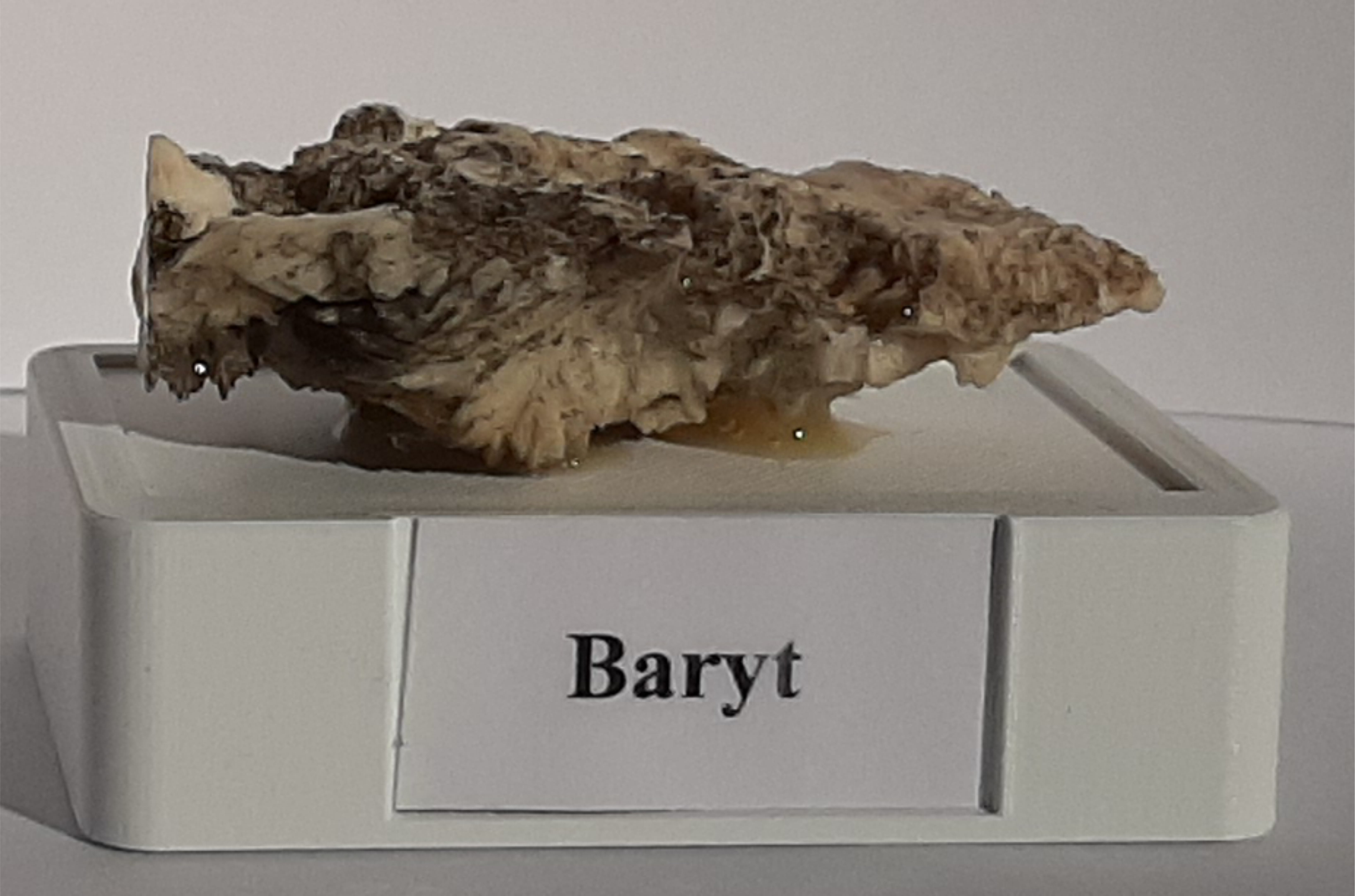
Barite
sulphates
4.3 to 4.6 g/cm3
rhombus
perfect cleavage
3 to 3.5 on the Mohs scale
glassy
3 to 3.5 on the Mohs scale
glassy
occurs mainly in hydrothermal veins at low temperatures along with other minerals; may also occur in sedimentary rocks, forming spherical accumulations in them; is less common in sandstones; can be found in the USA, the Czech Republic, England, Germany, France and even in Poland, where it occurs in the south around the Świętokrzyskie Mountains and the Tatras
barite, i.e. barium (VI) sulphate, is a mineral belonging to the group of sulphates which is usually colourless or white in colour; it is characterised by a vitreous sheen, excellent splitting and a shallow or stepped fracture; it is not a hard mineral because its hardness is between 3 and 3.5 on the Mosh scale; it is a very heavy mineral because its density is between 4.3 and 4.6 g/cm3; it is therefore used, inter alia, for weighting purposes; it is also used in medicine as an X-ray absorber or as a medicine for the treatment of the digestive system; in the paint industry, fillers added to barium powder can increase the thickness, strength and durability of the coating; fillers containing barite can also improve the properties of rubber, paper and plastics
is the most common barium mineral; it gets its name from its density because the word baros in Greek means "heavy"; he contributed to scientific discoveries - thanks to him, the phenomenon of thermoluminescence was first observed in 1774; Vincenzo Casciarolo, a 17th-century Italian shoemaker interested in alchemy, was the first to notice barium in the form of unusual pebbles that glowed for years when exposed to heat he thought he may have discovered the philosopher's stone and named the pebbles "stones of Bologna" after his native city, Bologna, Italy; unfortunately, it was later determined that these glowing pebbles were barium sulfate; the main ingredient of barite is barium sulfate, which does not dissolve in either water or acid, so even if it is eaten, it will not produce toxic barium ions in the stomach; however, if the human body absorbs pure barium sulfate powder, it may cause chest pain and tightness, cough, etc.; prolonged inhalation may cause pneumoconiosis


